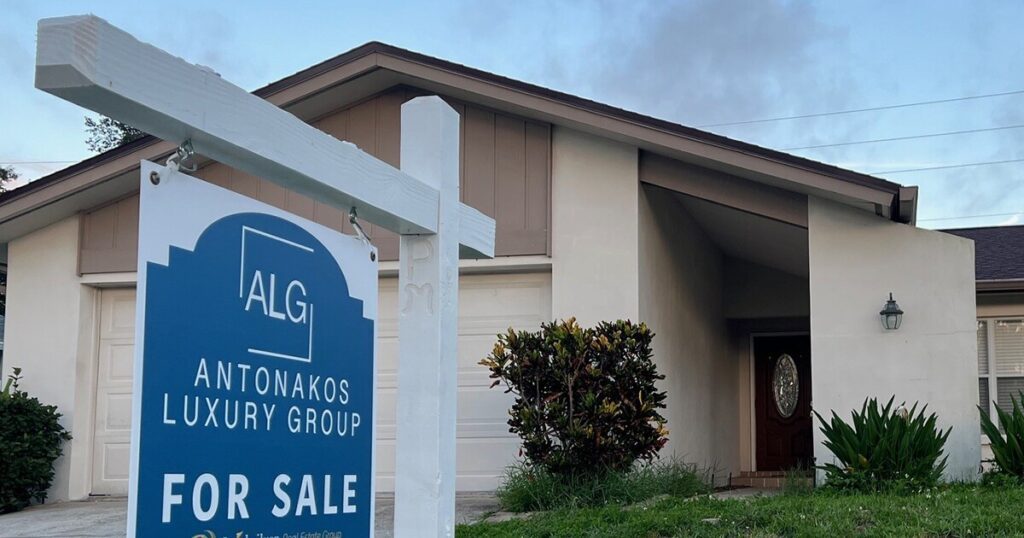Florida Real Estate Market Update 2024: Declining Sales and Prices Amid Recovery Challenges
The Florida housing market is currently facing a noticeable slowdown in both condo and single-family home sales, accompanied by a decline in prices after a pandemic-fueled surge. This comprehensive update explores the factors influencing these trends across key regions in the Sunshine State, from Southwest Florida to Tampa Bay and Northeast Florida.
Florida Housing Market Trends: A Post-Pandemic Slowdown
During the COVID-19 pandemic, Florida’s real estate market experienced an unprecedented boom, driven largely by historically low mortgage rates and an influx of residents seeking warmer climates. However, recent data reveals a shift:
- Condo sales in multiple counties dropped sharply:
- Hillsborough County: Down 20% in April
- Miami-Dade County: Down 21%
- Southwest Florida overall: Down 15.5%
- Panama City area: Declined by 27%
Juan Arias, Director of Market Analytics at CoStar, stated, “We are beginning to see the real pain in the condo market right now."
Factors Behind Condo Market Decline
Brad O’Connor, Chief Economist at Florida Realtors, highlights several reasons for this downturn:
- High mortgage and insurance rates have dampened buying enthusiasm.
- Rising homeowners association (HOA) fees linked to new reserve requirements enacted after the tragic 2021 Surfside condo collapse, which mandated "milestone inspections" and stricter structural reserve policies.
- Slow recovery in coastal condo properties, especially in Southwest Florida, due to hurricane damage and insurance challenges.

The 2021 Surfside condo collapse resulted in 98 fatalities and led to reforms in building inspection laws and reserve funding.
Single-Family Home Market: Price Adjustments and Affordability Concerns
Single-family home sales have also been cooling down since February 2024, with a notable 4% year-over-year drop in median prices in April. While still roughly 50% higher than pre-pandemic levels in 2020, this marks the largest one-year decline observed since 2011.
O’Connor stresses that affordability remains the primary barrier for potential buyers, amplified by:
- Increasing interest rates rising back to 7-8% after historic lows during the pandemic.
- Escalating insurance premiums following recent hurricanes such as Hurricane Milton.
- Economic inflation impacting buyer confidence.
Regional Insights on Florida’s Housing Market Slowdown
Southwest Florida: Recovery Hampered by Natural Disasters and Market Adjustments
Karen P. Moore, publisher of Southwest Florida Business Today, clarifies that the current slump differs significantly from the 2006 housing crash.
- Market fluctuations are normal, though this time there are more safeguards in place.
- The back-to-back hurricanes in 2023-2024 devastated many properties, causing originally agreed deals to collapse.
- Homeowners’ associations in coastal areas face challenges managing recovery and insurance complexities.
- Condos, especially along the coast, are recovering slowly due to lingering insurance issues and regulatory demands.
“It’s going to be a slow recovery for the condo market, particularly in coastal Southwest Florida,” Moore adds.
Tampa Bay Region: From Pandemic Surge to Cautious Buying
Rebecca Liebson, reporter with the Tampa Bay Times, outlines the regional market transition:
- The pandemic caused a surge fueled by exceptionally low interest rates (2-3%), prompting many to buy.
- The return of higher rates (7-8%) combined with elevated home prices has led to increased buyer hesitation.
- After 2024 hurricanes, there was a moderate increase in sales of storm-damaged homes, mainly purchased by renovators and flippers.
- Liebson notes this market is less frenzied than during the pandemic; buyers now purchase as necessity dictates rather than opportunism.
“The pace has slowed, but people still buy—just with more deliberation.”

Flooding from overloaded storm sewers in northern Hillsborough County after Hurricane Milton in October 2024.
Northeast Florida: Movement Toward Market Balance
Stuart Korfhage, Managing Editor of the Jacksonville Business Journal, describes a market that is stabilizing:
- The market is seeing smaller corrections rather than dramatic declines.
- Buyers tend to view this as a more favorable market while sellers still expect a strong seller’s market, resulting in negotiation challenges.
- The area remains attractive due to relatively more affordable housing compared with other parts of Florida.
- Factors like rising interest and insurance rates, plus buyer diligence, are slowing sales but not causing a collapse.
“Numbers are edging off the peak but nothing catastrophic; a balanced market seems imminent.”
Why the Florida Housing Market Is Not on the Brink of a Crash
Across all regions, experts concur that the current slowdown should not be mistaken for a housing crash:
- Market corrections are natural after a period of rapid growth.
- Protective mechanisms and regulatory changes have been implemented since previous crises.
- Florida remains a highly desirable destination for movers.
- Though affordability challenges persist, the market is expected to adjust gradually rather than collapse.
Understanding Florida’s Housing Future: Key Takeaways
- Condo sales face the steepest declines due to mortgage, insurance, and HOA fee pressures post-Surfside collapse.
- Single-family homes experience moderate price drops, still well above pre-pandemic values.
- Hurricanes continue to impact market dynamics, especially in coastal and hurricane-prone areas.
- Rising interest and insurance rates significantly affect affordability and transaction volume.
- Regional differences exist, but broadly, the market is stabilizing without signs of abrupt crashes.
For a deeper dive into Florida housing data and forecasts, visit Florida Realtors and CoStar Market Analytics.
Stay informed on the evolving Florida real estate landscape as the market adapts to post-pandemic realities and environmental challenges, helping buyers, sellers, and investors navigate these changing conditions with confidence.


